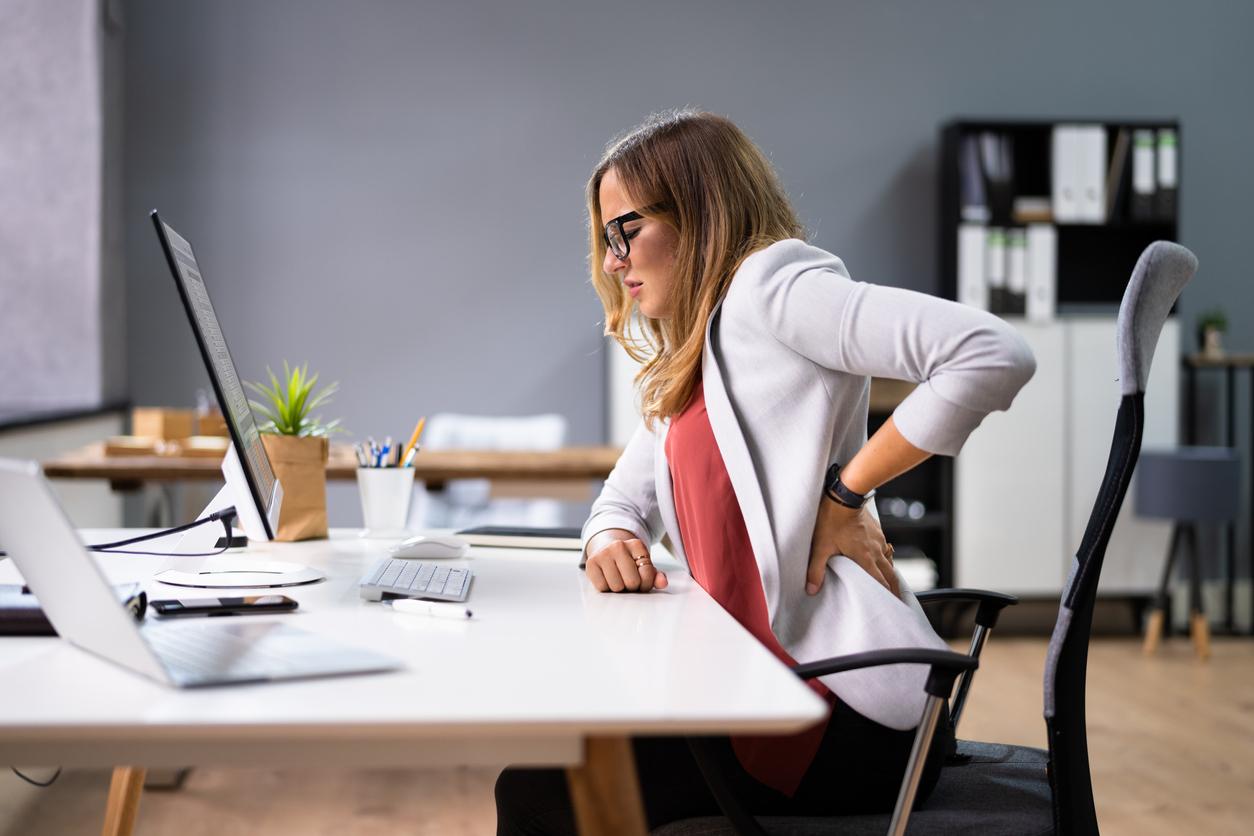Many employees suffer from musculoskeletal disorders (MSDs). Back pain is one of the most common pains, especially among people working from home.

- Musculoskeletal disorders are the most common occupational diseases in France.
- Women and people from working class backgrounds are the most affected.
The workers have their backs full. According to one Ifop study for PERCKO*, more and more French employees suffer from back pain related to their professional activity. If they are frequent among workers and manual workers, these pains do not spare office workers, in particular those who telecommute most of the time. 93% of teleworkers surveyed in this study say that the back pain they suffer from is related to their professional activity.
Back pain is the most common musculoskeletal disorder
This research was carried out by self-administered online questionnaire from December 6 to 8, 2022 with a sample of 1,004 people, representative of French employees. 86% of respondents have already suffered from a work-related musculoskeletal disorder. Back pain is the most frequently cited disorder: in 2022, it affected 69% of respondents, compared to 50% in 2010, followed by neck and shoulder pain. In total, 77% of respondents said that their pain is related to their work.
Telecommuting, a risk factor for back pain?
While back pain and musculoskeletal disorders are common in the working environment and in manual trades, the study shows that people accustomed to teleworking are strongly affected. 46% of full-time teleworkers claim back pain at least once a week. However, the latter feel rather neglected by their employers. “A majority of teleworkers believe that their company’s participation in the purchase of ergonomic equipment is insufficient (60%)”, is specified in the text. “This study is along the same lines as a previous PERCKO study conducted during confinement, a study which had shown an increase in back pain during generalized telework, in particular because the equipment we have at home is often not very ergonomic and unsuited to successive working days”raises Quentin Perraudeau, co-founder of PERCKO, a company specializing in tools to relieve back pain, which commissioned the study from IFOP.
Work: what are the consequences of back pain?
If the pains are work-related, they don’t stop when the day is over. 64% of people with work-related back pain say it has an impact on their overall physical health. Nearly 60% find that it degrades their level of psychological well-being and their morale in general. “Back pain is disabling since it limits employees at all levels and at all times, both at work and in their personal lives, observes Quentin Perraudeau. But the interest of the study is to show that these physical pains also cause very strong emotional suffering, with constant apprehension and a mental load that is all the more difficult to bear when there is a fear of stigmatization. Four out of ten employees think that their back pain is underestimated by their managers, and 60% of the most precarious employees do not dare to ask for work stoppages for this reason..” Or as theHealth Insurance“the employer or the employee representative bodies of the company” are “stakeholders in the prevention of back pain“. In some cases, the workstation can be adapted or part-time therapy can be considered, in order to limit pain as much as possible.

*Ifop study for PERCKO, carried out by self-administered online questionnaire from December 6 to 8, 2022 with a sample of 1004 people, representative of French employees
















